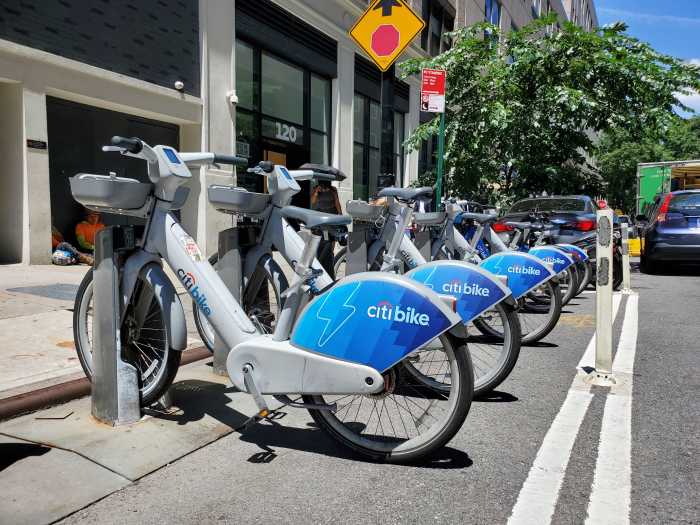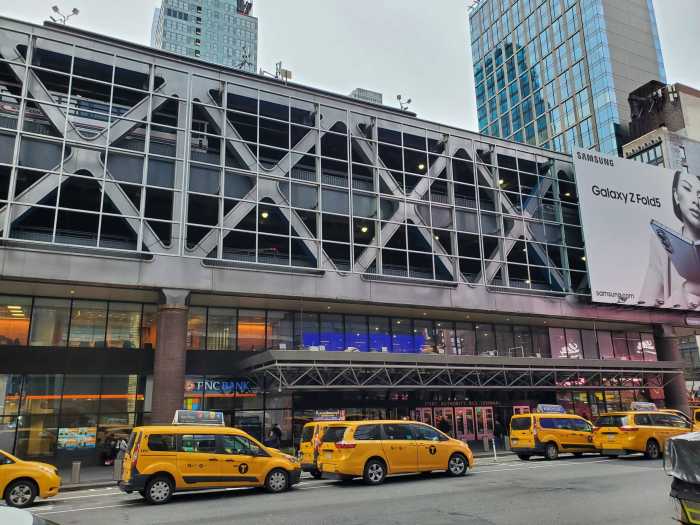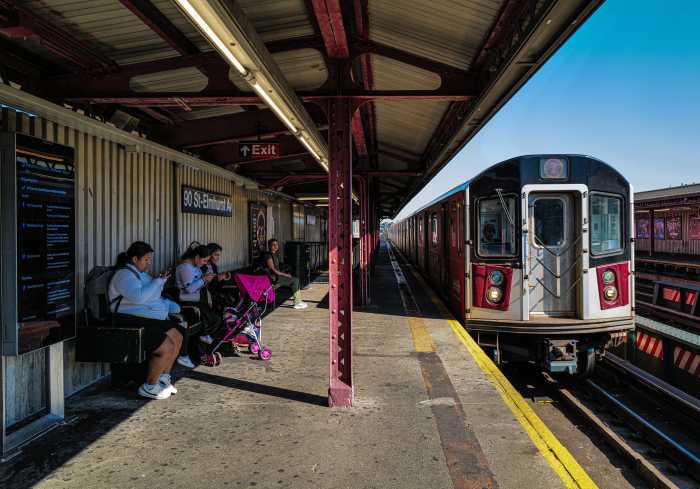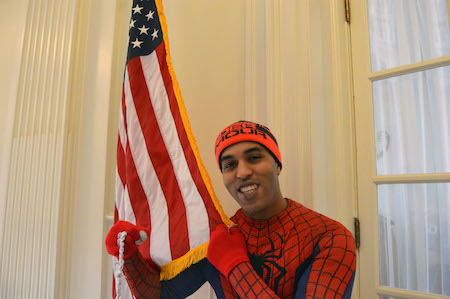
BY JACKSON CHEN | The Times Square wanderers came out to defend their livelihoods during the City Council’s first hearing on a bill that aims to bring order to the city’s pedestrian plazas –– none more central in the minds of the measure’s sponsors than the Crossroads of the World.
On March 30 during the Council’s Transportation Committee meeting, ticket sellers and Broadway promoters joined now familiar costumed characters in warning of the damage that Intro 1109 would bring.
“We work on tips and we work on chances,” said Abdelamine El-Khezzani, better known as Spider-Man of East 45th Street and Broadway. “This has opened up an opportunity for a lot of people to support their families.”
But calls for regulation have emerged as tales of aggressive panhandling, harassment, and even assault have moved to the fore in Times Square’s reputation. With little regulation, the area sometimes turns into a battleground of aggression between costumed characters and tourists.
On March 26, El-Khezzani himself was involved in an altercation with a visiting Virginia family. According to El-Khezzani, the Virginia family — who have been identified as Rodney Merrill and Margaretta Patman — walked away without compensating Spider-Man after promising a tip. El-Khezzani said he called Patman — who accuses the costumed character of kicking her — a liar and Merrill a chicken. In video footage of a portion of the confrontation, a visibly upset Merrill is seen taking a swing at El-Khezzani, who said the punch landed on his throat.
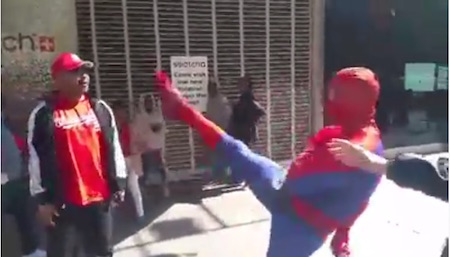
After the family walked away, El-Khezzani approached nearby cops to address the situation. Both parties were then charged with assault, after disagreements over the possibility the two sides could settle things without pressing charges. El-Khezzani said he is due to appear in court April 6, at which time a previous assault charge against him will also be taken up. The Spider-Man character said he is talking to his attorney about getting the matters heard separately, at different times.
At the March 30 Council hearing, however, Spider-Man was joined by Batman and the Joker in insisting such incidents are not representative of their interactions with tourists. Costumed characters, they argued, should not be tarred with the very worst incidents the public hears about.
“I would like people to look for the positive,” said El-Khezzani. “We put a big smile on people’s faces.”
They may not wear costumes, but ticket sellers and Broadway promoters were on hand at the Council as well to share their worries about being corralled into a specific zone within Times Square. The ticket sellers, who work solely on commission, said they’d be caged into a small area with their competition just a few feet away.
Broadway show promoters, who provide marketing for the plays and musicals running nearby, argued they should be exempt from the legislation. According to Tim Wooster, co-founder of the Broadway marketing company theatreMAMA, his 60 employees don’t fall under the rubric of “financial or commercial action” because they’re simply handing out discount coupons and other advertising material for Broadway shows.
Wooster’s business partner and co-founder of theatreMAMA Michelin Hall acknowledged the need for changes in Times Square, but said the Council’s bill restricting his employees’ activity was not the answer.
“If you take that right away and you take these public sidewalks and make them private,” Hull said, “what’s going to happen is this squishing effect where everyone’s competing.”
On the other side of the debate, the Times Square Alliance, the area’s business improvement district, held two rallies to generate more support for the bill. During a March 29 rally followed by another right before the Council hearing, the group showcased numerous tweets and testimonials about verbal abuse and inappropriate touching asserted by both locals and tourists passing through Times Square.
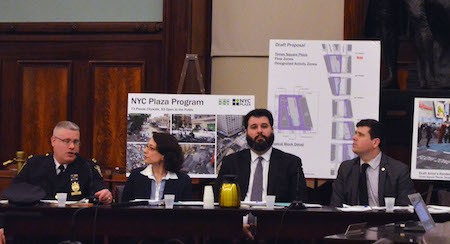
Kicking off the hearing, the city Department of Transportation presented a rough draft of a plan for three types of designated areas within Times Square. According to Polly Trottenberg, the DOT commissioner, the agency wants to create “flow zones” that establish a clear path for pedestrians and a general use area for scheduled events and sightseers looking to take in the atmosphere.
But it’s the proposed “designated activity zones” or DAZs that have caught the ire of costumed characters, street performers, ticket sellers, and Broadway show promoters.
According to Trottenberg, there would be eight DAZs that measure roughly 10 feet by 50 feet that would accommodate the approximately 300 total solicitors. The commissioner explained that the DAZs would be subject to some “trial and error” and the agency would make adjustments as needed with help from the NYPD and its Times Square Unit.
Members of the Council, including prime sponsor Corey Johnson, a West Side Democrat, stressed that zones wouldn’t be putting anyone out of business.
“In no way is anyone trying to tamp down or limit expression or free speech or the ability to make a living in Times Square,” Johnson said. “We’re just trying to bring a little bit of order to the plaza itself.”
But the costumed characters who testified at the hearing argued that problems in the area can be solved by dealing with the troublemakers and not by restricting the movement of all the performers and promoters.
“I’m going to walk Times Square no matter what,” said José Escalona-Martinez, who appeared in his signature Dark Knight costume sans mask. “I am a human being and I have the right to fight for my freedom.”
Batman and the Joker even put their rivalry to the side to join in the outcry of those who said they who would be negatively affected by the bill.
“We have a First Amendment right to look the way we want,” said the Joker, whose real identity is Keith Albahae. “Let’s be clear what the real problem is. The real problem is about looking different.”



